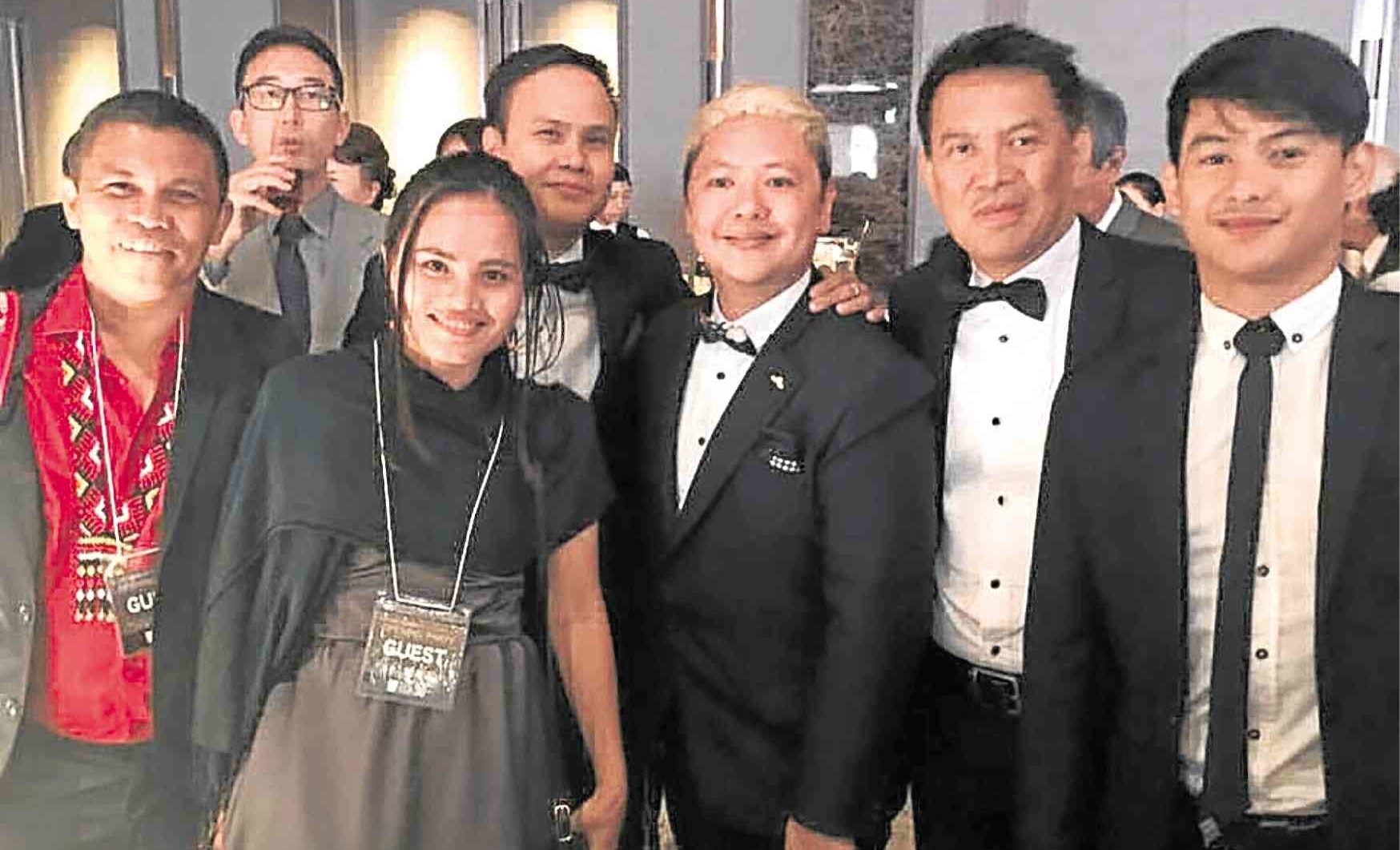
Part of the PH contingent in Tokyo (from left): Arnel Barbarona, Ethel Mendez, Daniel Palacio, Howard Yambao, Brillante Ma Mendoza and Vince Rillon
TOKYO—Two products of this year’s Sinag Maynila made it to the 30th Tokyo International Film Festival, ongoing in Japan until Nov. 3.
Arnel Arbi Barbarona’s “Tu Pug Imatuy (The Right to Kill),” which won best film at Sinag Maynila, is included in the Asian Future section. Meanwhile, HF Yambao’s “Kristo,” which won best actor for Kristoffer King at Sinag Maynila, is part of the Crosscut Asia: What’s Next Southeast Asia? program.
Needless to say, both indie films bear the stamp of approval of Cannes winner Brillante Ma Mendoza, who spearheads the Sinag Maynila fest. “Kristo” was chosen by Tokyo organizers upon Mendoza’s suggestion.
Also part of Tokyo’s World Focus section is Daniel Palacio’s “Pailalim (Underground),” which was produced by Mendoza. Palacio and actor Joem Bascon traveled to Japan for the event.
Both Barbarona and Yambao are looking forward to sharing their works with the Tokyo audience.
“It’s a great honor to be on the same roster as the next generation of Southeast Asian filmmakers, as recommended by the region’s auteurs,” Yambao said.
Barbarona recalled that competing in a foreign festival had been furthest from his mind during the start of filming. “Our only goal was to tell the story of our Lumad brothers and sisters in the hinterlands of Mindanao—their past and present conditions. We’re delighted to spread our advocacy to a wider audience in Japan.”
Yambao explained that the world needed to know about the plight of ordinary Filipinos, as depicted in his film. “It follows a man and a woman who are working hard to raise three children, but it is, at its core, an experience that is universal, relatable to anyone who is fighting his or her way through the game of life.”
Barbarona’s goal is for Tokyo fest viewers to gain a deeper understanding of our “country’s challenging situation.” “Lumad stories are rarely tackled in movies. My wish is for this film to serve as an eye-opener not only for our fellow Filipinos, but also for foreigners.”
Yambao related that his film “showcases three different, but connected, points of view on how Filipinos deal with life’s challenges: faith in God, as seen in Lenten rituals and traditions; hard labor, in order to earn a decent living; and taking a risk in a game of chance. We will take the audience on an experiential journey inside a cockpit arena.”
Barbarona’s primary aim is for the film’s message to reach its target: the hearts and minds of audience members. “We hope that the struggles of our indigenous people will resonate among viewers in Japan and the rest of the world.”
Yambao agreed: “I am grateful to be given an opportunity to share my work with an international audience. I hope this will open more doors for new filmmakers like us.”
Barbarona has a simple mission in Tokyo: “Hopefully, this film will spark a discussion on supporting and strengthening the peace talks in Mindanao.”